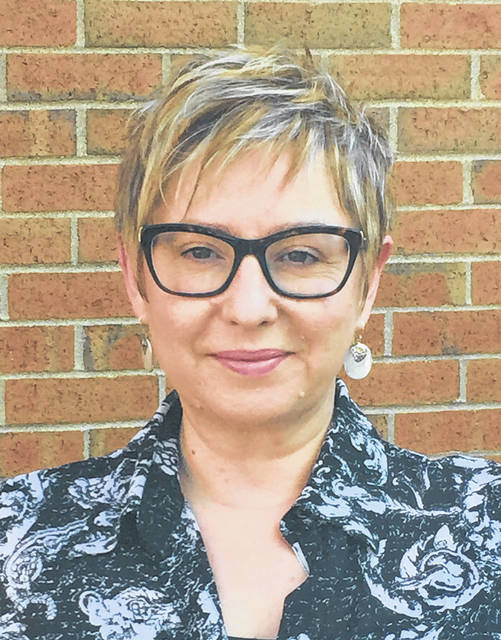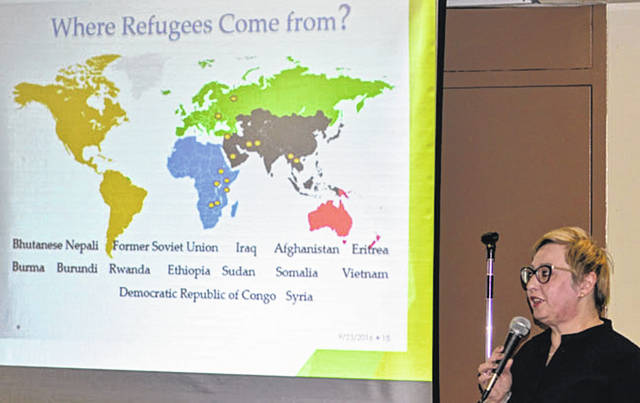

Millions of people around the world are classified as refugees, yet the United States accepts 0.1 percent of those people.
According to Nadia Kasvin, herself an immigrant from Ukraine, 44,400 people per day leave their homes. That’s about the population of the city of Delaware and its immediate area.
Kasvin, the director and co-founder of US Together, a refugee resettlement agency, focused on the complexities of being a refugee in the modern world during Friday’s Great Decisions lecture.
Kasvin used her experiences to start the agency, which helps people become fully integrated into American society and independent of aid.
Refugees are a legal immigrant status in the United States. They are processed outside of the nation and often will spend years in refugee camps. To be considered a refugee, a person must be fleeing from his or her home nation to escape conflict and persecution.
“There are five ways to be persecuted,” Kasvin said. “You’re being persecuted for your race, religion, nationality, political viewpoint or social group.”
According to the United Nations Refugee Agency’s annual Global Trends study, 68.5 million people were driven from their homes in 2017, the latest figures available. That’s 2.9 million more than 2016, the biggest increase registered and a new high. It’s more than the population of Thailand.
“A person every two seconds is fleeing,” Kasvin said.
Of the 68.5 million, 25.4 million were registered as refugees. Registering with the United Nations can be difficult, as most U.N. agencies are in capitals of nations and reaching those capitals is dangerous, Kasvin said.
The United States is expected to resettle 30,000 refugees this year. On average, the world settles 0.2 percent of displaced peoples.
“I knew we were resettling fewer refugees than previous years, but I didn’t realize how significantly it had dropped in recent years,” audience member Ashley Foertmeyer said.
The decision to leave one’s nation is difficult, Kasvin said.
“It’s not easy … We are leaving everything behind,” Kasvin said. “No one talks about the loss of everything, including friends and family, when you leave.”
In Ohio, most refugees come from Eastern Africa, Asia and the Middle East. Somalis and Bhutanese Nepalians are the two largest groups in Columbus. Central Ohio has the largest Bhutanese population in the United States, and the second largest Somali population outside of Africa.
“Columbus has a good reputation among refugees, as it is affordable to live here and settle into your new life,” Kasvin said.
Kasvin talked about refugee camps and how unsafe they are, especially for women and children who are the biggest portion of displaced peoples. The U.N. has begun to focus on incorporating the camps into the local population, leaving some people with no choice but to live in a camp or scrape by in the areas near camps.
“Camps are not a place for human beings,” Kasvin said.
“I think in the Delaware community, we are making extraordinary efforts and have been as long as I can remember, in terms of being welcoming to immigrants, refugee and asylum seekers,” audience member Holly Tschakert said.
“I didn’t realize the difference in legal definition between refugees, asylum seekers, immigrants.”
The next Great Decisions lecture will be on March 22, featuring John Mueller, professor of politics and government at The Ohio State University. His talk will focus on complacency and appeasement in the current political climate.
The free lectures take place at the William Street Methodist Church, 28 W. William St., Delaware.



